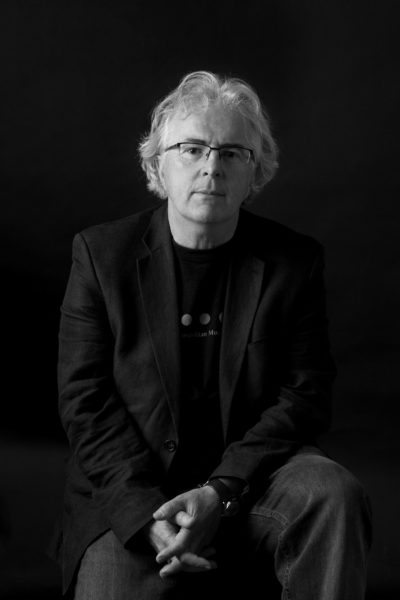So.
Hurling and camogie have been granted special status by the United Nations cultural body. I like the name of the list that UNESCO (The United Nations Educational, Scientific and Cultural Organization) uses: the Intangible Heritage List.
I would have thought hurling and camogie tangible enough, if you were given the task of being marked (pun intended) by a Catherine Foley or Daithí Burke for 60 or 70 minutes of championship fare. But I get what they mean – as distinct from buildings and objects and so on. In a way, describing sports as intangible is a good idea, because it’s the feelings we have about sports that matter, not their physical presence or essence – or importance.
And, of course, hurling and camogie people around the country were nodding their ‘proper orders’ on Thursday and lording it even more over their poor football cousins. In between enjoying football’s current bad press, what between the hegemony of Dublin, the GPA/GAA rule spat and the kicking it’s currently getting, left right and centre.
Kicking your opponent when he’s down being a long-cherished sporting activity – almost as popular as the Irish penchant for begrudgery, which is a version of kicking your opponent when he’s up (and much more fun).
Now, I lost any little grá I had for football back in the 1970s when I witnessed Jimmy Barry Murphy (God) getting horsed around the field in Killarney by a dogged fair haired fella in a Kerry jersey (who later went on to become a government minister, hint, hint). That was that. Any sport that didn’t facilitate my God to show his otherworldly powers of grace and skill could go to hell in a handcart, as far as I was concerned.
In hindsight, it was me just being a sulky teenaged bad loser with tunnel-vision. My high dudgeon was being counterbalanced by sage footballing heads who knew the value of good marking when they saw it, and the skills that go into it – but I couldn’t or wouldn’t see that. It said a lot more about me than football.
So I don’t look down on football any more, or any other sport, either. Essentially, that would be the same as looking down on people, saying that hurling people are better than, for example, football people. Or rugby (the people’s sport, or THE people’s sport, maybe) people are better than soccer people – poor old soccer trying to extricate itself out of the wringer of Irish public scorn these days.
I can make a fairly good case for hurling/camogie being a great sport (the greatest, even) but I know that David Foster Wallace can make a better case for tennis – because he’s David Foster Wallace. And Neil Frances can make his case for rugby – not that it will be as good as that of David Foster Wallace, because … well, because Neil isn’t David Foster Wallace.
And so on. That’s all fine. And I wrote a piece for The Irish Examiner bigging up hurling a few months ago after Limerick won the Senior Hurling All-Ireland Final. And a few people on Twitter said they were sick of the big hurling love-in of 2018 and I don’t blame them. Do they love their sport as much as we hurling/camogie people love ours? Damn right they do. Is their intangible heritage lesser than ours? Eh, no.
More importantly, is the circle of wonder in the eyes of a Donegal child watching her football team take the field in an Ulster Final a lesser thing than that of a Limerick child watching her hurling team take the field in an All-Ireland Final? No need to answer that one.
Now, we’re all human. Even the great sportswriter Simon Barnes had his Homeric nod when it came to golf and boxing. But he knew that his aversion to golf was class-related and a form of inverted snobbery – more about him than the game. And his disparaging of boxing is easily counteracted by the writing of Joyce Carol Oates: ‘to write about boxing is to be forced to contemplate not only boxing, but the perimeters of civilisation – what it is, or should be, to be human.’ Oates knocks out Barnes in the first.
Saying one sport is better than another is like saying poetry is better than painting, or literature is better than music. Completely pointless. It is, if you want it to be. It isn’t if you don’t.
We can all be reductive, poking fun or belittling whatever sport doesn’t do it for us. This justifies our lack of interest and ‘proves’ our sport is better than theirs. We can all put down the sporting values we don’t share, or what we have never experienced, or don’t understand. One’s intangible heritage is another’s waste of time and space.
For example, I don’t get horse-racing. My blood doesn’t quicken at the sight of a huddle of small people on large animals running around a muddy field so that bookmakers can make fortunes codding eejits out of their hard-earned money.
See what I did there?
And yet, imagine a small girl being brought to racing by her father for the first time this weekend. The excitement of the night before, her mother fussing, the walk from the car, the crowds, the promise of chips. Seeing a light in her father’s eyes she never saw before, hearing him shout for the first time in her life, sensing the raw want in the crowd’s roar – seeing his elation when his horse won the last race. The thudding of the animals as they go past, the smell near the stables, the magic in how the shining jockeys control the shining horses, the wads of money passing from hand to hand, the closeness of the all people at the exit when her father held her hand, the stories to her mother and little brother when she got home.
Imagine what that experience will plant in her, what it will germinate and grow to become. If we belittle other sports, we belittle our own.
Anyway, there is no mutual exclusivity, no zero sum gain. There is no either or, we can have them all. All God’s children got a place in the choir.
Ultimately, saying that my sport is better than yours boils down to saying my child is better than yours, my love is stronger than yours, my feelings are more important than yours. And we all know where that leads.

